MOON LAB
in Brain Sciences
Announcements
-
May, 23, 2025
-
Oct, 29, 2024
-
Oct, 7, 2024
CHEMICAL SENSES
Research Interests
Our laboratory is investigating the brain’s chemical senses. These senses have been in the scientific spotlight since Drs. Axel and Buck were awarded the Nobel Prize in 2004 for their groundbreaking work identifying odorant receptors and olfactory processes.
Using molecular, cellular, morphological, and behavioral techniques, we study the mechanisms of olfaction. Additionally, we are engaging in multidisciplinary, translational research with the goal of applying our findings to biomedical and bioengineering fields.
1. Structure and Functions of the Olfactory System
Our laboratory has delved into the cellular and molecular mechanisms underlying the olfactory signal transduction pathways. The initial step in these pathways involves the interaction of odorous molecules with odorant receptors (ORs) in the olfactory cilia of olfactory sensory neurons (OSNs). By investigating this detection process, we aim to gain deeper insights into the intricacies of olfaction.
Therefore, in our lab
We study OR structure to understand the role of specific motifs in OR function.
We investigate the olfactory signaling pathway.
2. Development of the Olfactory system
Our laboratory has sought to understand how neural stem cells can develop, mature, and integrate into the pre-existing neuronal circuitry. The olfactory system is a particularly valuable model for studying this process, as neuronal regeneration occurs throughout life in this region.
Therefore, in our lab
We study the developmental mechanisms of the olfactory system using rodent models.
We investigate the underlying cellular and molecular mechanisms of development and regeneration in the olfactory system.
3. Neurodegenerative Diseases in the Olfactory System
Our laboratory has explored why olfactory dysfunction often appears in the early symptomatic stages of Alzheimer's disease (AD) pathology. The lack of understanding regarding the mechanisms behind this phenomenon suggests that sensory systems may be more vulnerable to AD pathology than the central nervous system as a whole.
Therefore, in our lab
We study differences in structure and behaviour in the olfactory system using AD model mice.
We aim to establish presymptomatic diagnosis of AD using human subject studies.
4. Cognition in the Olfactory System
In many species, the olfactory system plays a crucial role in survival, including reproduction, avoiding predators, and foraging for food. However, compared to other sensory modalities, the olfactory system has received less attention as a research topic, and its cognitive processes have not been extensively studied. In addition to structural and developmental studies, investigating the cognitive processes of the olfactory system can offer valuable insights.
Our laboratory has explored the cognitive processes of odors, such as odor categorization in the brain, which cannot be fully explained by peripheral olfactory mechanisms. To conduct this research, we have employed brain imaging techniques such as electroencephalography (EEG) and functional near-infrared spectroscopy (fNIRS).
Therefore, in our lab,
We study early olfactory processing in the human brain.
We investigate human odor categorization based on behaviour and brain imaging studies.
We explore human high cognition related to olfaction.
Members
- Professor
Prof. Cheil Moon

Dr. Moon earned his PhD in Neurobiology at Imperial College London in 1994. Shortly after, he joined the Department of Neuroscience at Johns Hopkins University School of Medicine, where his research focus has remained firmly in the field of olfaction ever since. Notably, in 2009, he became the founding faculty member in the Department of Brain Sciences at Daegu Gyeongbuk Institute of Science and Technology (DGIST) in Daegu, South Korea.
Dr. Moon's expertise extends beyond olfactory signalling pathways. He has pioneered a brand new research area: olfactory system-related neurodegenerative disorders. His work has yielded significant discoveries in the mechanisms of olfactory signalling, and he has published his findings in prestigious journals such as the Annual Reviews of Physiology, Neuron, PNAS, and the Journal of Neuroscience.
Dr. Moon's research interests have recently expanded to investigate olfactory dysfunction in Alzheimer's Disease, with a focus on translating these findings into a practical "bench to bedside" approach.
Currently, Dr. Moon serves as the Director of the Convergence Research Advanced Centre for Olfaction at DGIST.
Phone: +82 53 785 6110
Email: cmoon@dgist.ac.kr
Office: E4-414
- Research Professor
김소연(SoYeon Kim)
Research Professor
- Post-doc
권오훈(Oh-Hoon Kwon)
Post-doc
- Student
최지윤(Choe Jiyun)
Ph. D Candidate

정다혜(Da-Hae Jeong)
Ph. D. Candidate

최기원
M.Sc candidate
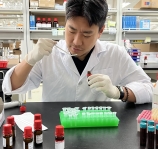
윤성원
M.Sc candidate

박은지
MS/PhD candidate

이유연
M.Sc candidate

안유진
M.Sc candidate

주현창
BS / MS / PhD candidate

- Alumni
유승준(SeungJun Yoo)
MS / PhD
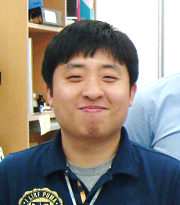
Department of Life Science, Hanyang University
(Sensory Neuroscience Lab)
류상은(SangEun Ryu)
MS / PhD

Korea Brain Research Institute
임승영(SeungYeong Im)
MS / PhD

Dept. of Biological Sciences
KAIST
배지섭(JiSub Bae)
MS / PhD

IBS
문선애(Sunae Moon)
MS / PhD
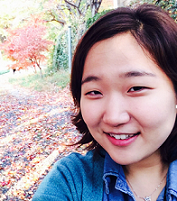
LG Electronics
손고운(Gowoon Son)
MS / PhD

Univ of California (San Francisco),
San Francisco, USA
(Dr. Leah Goldburgh Lab)
김광수(Kwangsu Kim)
MS / PhD

Department of Otorhinolaryngology, Technische Universität Dresden,
Dresden, Germany
(Thomas Hummel Lab)
심다미(Tammy Shim)
MS / PhD
Department of Biology, Lund University
Lund, Sweden
(Martin N Andersson Lab)
김삼환(Samhwan Kim)
PhD
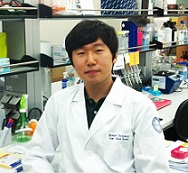
DGIST, Brain Engineering Convergence Research Center
김재연(JaeYeon Kim)
PhD

Univ of California(San Francisco),
San Francisco, USA
(Dr. Parades Lab)
이덕호(Deok ho Lee)
MSc
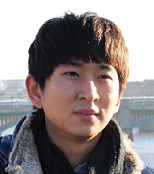
Ophthalmology, Boston Children's Hospital/Harvard Medical School
Boston, USA
이지원(Lee Jeewon)
MSc

김도경(Do-Kyeong Kim)
M.Sc

국경희(Kyung-Hee Kook)
M.Sc

Ajou University, School of Medicine
김원철(Won-Cheol Kim)
MSc

Seoul National University
이주연(Juyeon Yi)
MSc
김성환(Seonghwan Kim)
MSc

Dr. Kwak Lab
함창수(Chagnsu Ham)
MSc

Rasheed Ameer
MSc
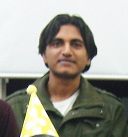
이선주(Lee Sun Joo)
MSc

이지혜(Ji Hye Lee)
Post-doc
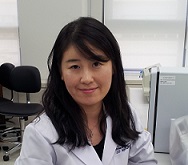
Univ of California(San Francisco),
San Francisco, USA
(Dr. Seeley Lab)
박윤희(Youn Hee Park)
Post-doc
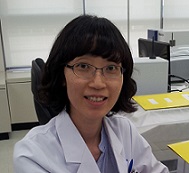
김소연(SoYeon Kim)
Post-doc
조봉기
Post-doc

Samyang Corporation Food R&D Center
Publications
-
Dec, 13, 2021
-
Dec, 13, 2021
-
Dec, 13, 2021
Notices
Contact
(우)42988 대구광역시 달성군 현풍읍 테크노중앙대로 333
333, Techno jungang-daero, Hyeonpung-eup, Dalseong-gun, Daegu, Republic of Korea
- [Prof. Cheil Moon]
- Phone : +82-53-785-6110
- E-mail : cmoon(at)dgist.ac.kr
- [To The Lab]
- Phone : +82-53-785-6120



